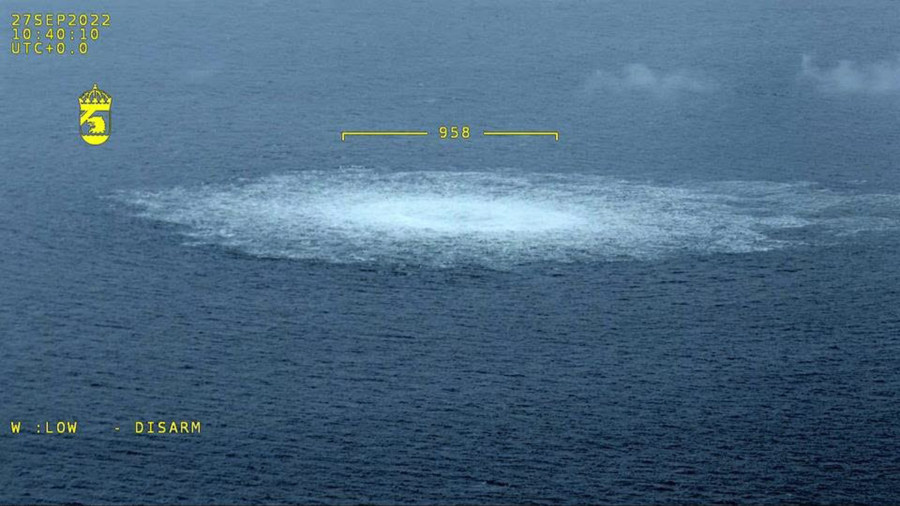Officials in Denmark said Tuesday that “powerful explosions” caused damage to the Nord Stream pipelines under the Baltic Sea.
The Russian-constructed Nord Stream system had carried billions of cubic feet of natural gas from Russia to Germany before it was damaged late last month. No nation or group has claimed responsibility for the incident, and the United States has not issued a public statement on who may have been behind it.
In a translated statement, the Danish Police Intelligence Services confirmed that “extensive damage” to the pipelines was caused by “powerful explosions.” However, the police agency did not assign blame for the explosions.
“It is not possible to say when” a larger “investigation can be expected to be completed,” the statement continued. “We understand there is great interest in the case, but at this time, no further information will be released from the investigation into the gas leaks.”
Swedish and Danish authorities have been investigating four holes in the Nord Stream 1 and 2 pipelines. Denmark’s findings appeared to be similar to those of Swedish prosecutors, who had earlier said two holes seemed to have been caused by blasts.
Video footage shot by a Norwegian robotics firm that was published by a Swedish news outlet showed a large gap in the Nord Stream 1 pipeline. The outlet reported that some 50 meters, or about 150 feet, were missing due to the blast.
Blame
Some European officials have suggested Russia may have been the explosions but those allegations were categorically denied by the Kremlin, including top spokesman Dmitry Peskov. Days after the blasts were reported, Peskov told reporters that such claims were “predictably stupid” and questioned why Russia would destroy a system that it had helped build and invested considerable funds into.
A top U.S. official, too, has denied that Washington was involved in the incident. Some, including a Columbia University economics professor, have speculated that the United States has much to gain by the Nord Stream pipelines going down because European nations would then increase their reliance on American natural gas.
That professor, Jeffrey Sachs, said in an interview in early October that President Joe Biden also publicly stated he would oppose the Nord Stream 2 pipeline in the days ahead of the start of the Russian invasion of Ukraine in February.
“If Russia invades, that means tanks or troops crossing the border of Ukraine again, there will no longer be a Nord Stream 2. We will bring an end to it,” Biden said at an event in February. He also told a reporter that “I promise you, we will be able to do it.”

Nonetheless, reduced flows of gas from Russia, which once supplied 40 percent of Europe’s needs, has left the European Union struggling to unite over how to respond to surging prices that have deepened a cost-of-living crisis for families and businesses.
The European Commission proposed a package of emergency measures on Tuesday to tackle high energy prices, including for EU states to start jointly buying gas. But it avoided proposing an immediate price cap on gas amid splits over the idea.
Supplies via Nord Stream 1 had already been halted even before the leaks were found because of a dispute over Western sanctions imposed over Russia’s invasion of Ukraine. Nord Stream 2 had not started commercial deliveries.
Reuters contributed to this report.
From The Epoch Times


